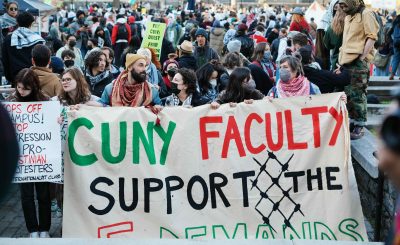By Keyondra Davis
Being a woman is never easy

As women, many of us understand that concerning discussion we have with our parents or with friends about staying safe whenever we walk outside. I remember the “if you take a key and put it between your fingers it becomes a weapon,†“I’ll buy you some pepper spray†and the “wired headphones can harm people too†conversations that always left me puzzled as a kid. It wasn’t until I was outside on my own and understood why my mom and dad always told me to check my surroundings constantly and to keep my mouth shut whenever an older man commented on my appearance. It was because I wasn’t safe no matter what I was doing, what I looked like that day and how old I was.
There are countless women who experience the same thing like that every day. Having to look over your shoulder every time a man is behind you or make pretend calls to friends to seem like someone else is aware of your location in that moment has become so normalized it is a problem. Sarah Everard’s death reflects this same exact problem.
On the night of March 3rd, 33-year-old marketing executive Sarah Everard, was walking home from a friend’s house near Clapham Common in London, when she suddenly disappeared. Her body was found a week later over 50 miles away, in a wooded area in Kent, England. According to Francesca Gariano in “Sarah Everard’s Death Sparks Global Women’s Safety Movement,†the person who caused her death was, “Wayne Couzens, an elite officer with London’s Metropolitan police†and he was charged with her kidnapping and murder. Gariano continues to report that, Everard was just starting over. Even though things had fallen apart for her with the ending of a long-term relationship and she had lost her job, she was a fighter who had pushed herself to keep going and supported her friends through their struggles too.
Everard was ready for the post-pandemic life and things were looking up with a new relationship and a great new job. She was just like any of us as women, as a person and a human being. Everard’s story may originate in London, but it travels across the globe. According to the World Health Organization, about 1 in 3 women worldwide, face some form of sexual or physical violence from a partner. 38% of murders are committed by intimate partners and in most cases, the victim of the violence knows the perpetrator personally. In WHO’s article called “Violence Against Women†it states, “Over a quarter of women aged 15-49 years who have been in a relationship have been subjected to physical and/or sexual violence by their intimate partner at least once in their lifetime (since age 15).†Although Everard’s case is rare, considering she didn’t know the perpetrator personally, its impact reminded people that there is still more work to do. Whether she knew the person or not, a situation as devastating as this one shouldn’t have happened.
“It could have been me.†Runs through any woman’s mind when hearing how she was just a normal person, just doing her daily activities like she always did. No one should ever lose the chance to live their lives just by walking home after spending time with a friend. No woman should have to fear people at night because they weren’t taught to respect women and treat them as human beings.
She only wanted to walk home. Now her death brings the spotlight to a conversation that’s struggled to find a voice at the table. How can we protect our women better than we do now?







